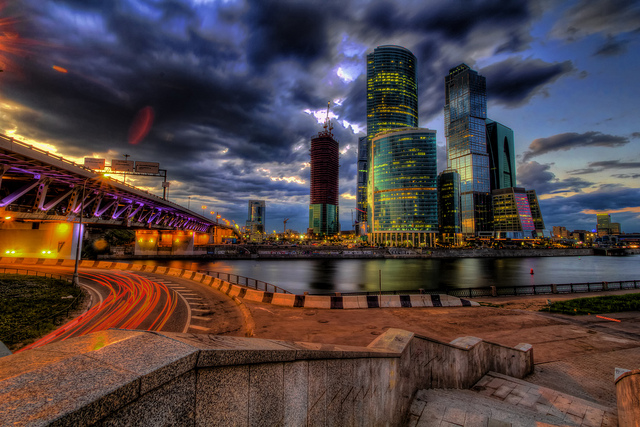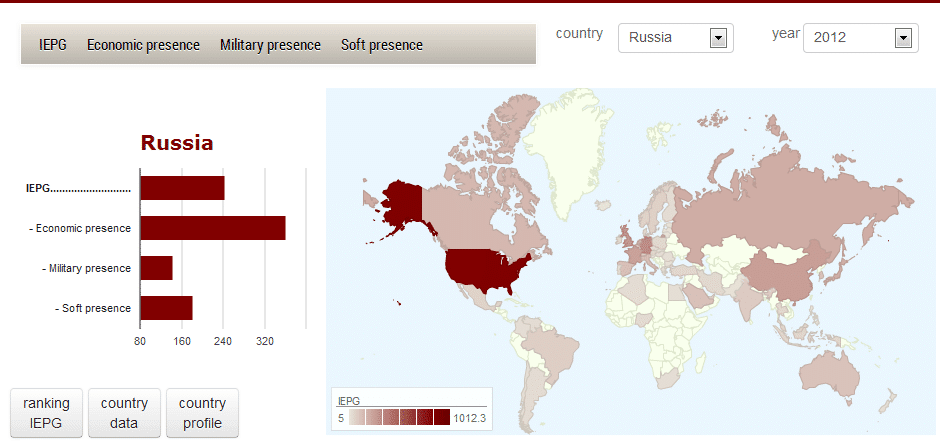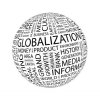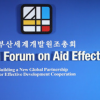On 17 June, we posted that it IS possible to measure the global presence of countries through the Elcano Global Presence Index (IEPG, according to its initials in Spanish) as an index compared to other indexes and indicators and as an analytic tool. As the IEPG’s results for 2012 were published a couple of weeks later, we think it’s quiet interesting to show what’s new in the 2012 country ranking.
So let’s begin with Russia (6th IEPG, 9th GDP and population of 142,960,000 in 2012). The country’s global presence has dropped significantly since the collapse of the Soviet Union, dropping from the 2nd to the 6th place between 1990 and 2012 –data for 1990 correspond to the Union of Soviet Socialist Republics (USSR)–. Given the structural transformation experienced by Russia over the past decades, there has been a drastic change in the relative contribution of each area of global presence. In 1990 it was mainly the military dimension that supported the Soviet Union’s global presence, accounting for 75% of the IEPG’s total value. By that time, the weights of soft and economic presences were merely 21% and 3%, respectively. In 2012, they amounted to 57% and 34%, with military presence down to only 9% of the IEPG.
The decline in global presence halted at the end of the 1990s. The lowest record for Russia is in 2000. It then began regaining its position, but still failing to reach the heights of the Soviet era in either relative or absolute terms. Russia’s status as the leading world exporter of gas and the 2nd-largest exporter of oil is responsible for the increase. In fact, growth in 2011-12 corresponds almost exclusively to the economic dimension, and more precisely to primary goods, that allowed it to climb one place, overtaking the French economy.
Although Russia’s soft presence has increased, its variables in this dimension are still fairly weak in comparative terms, except for sports and migrations –being in 2nd place, after the United States, in the latter dimension–.
More data and info at the IEPG website.





